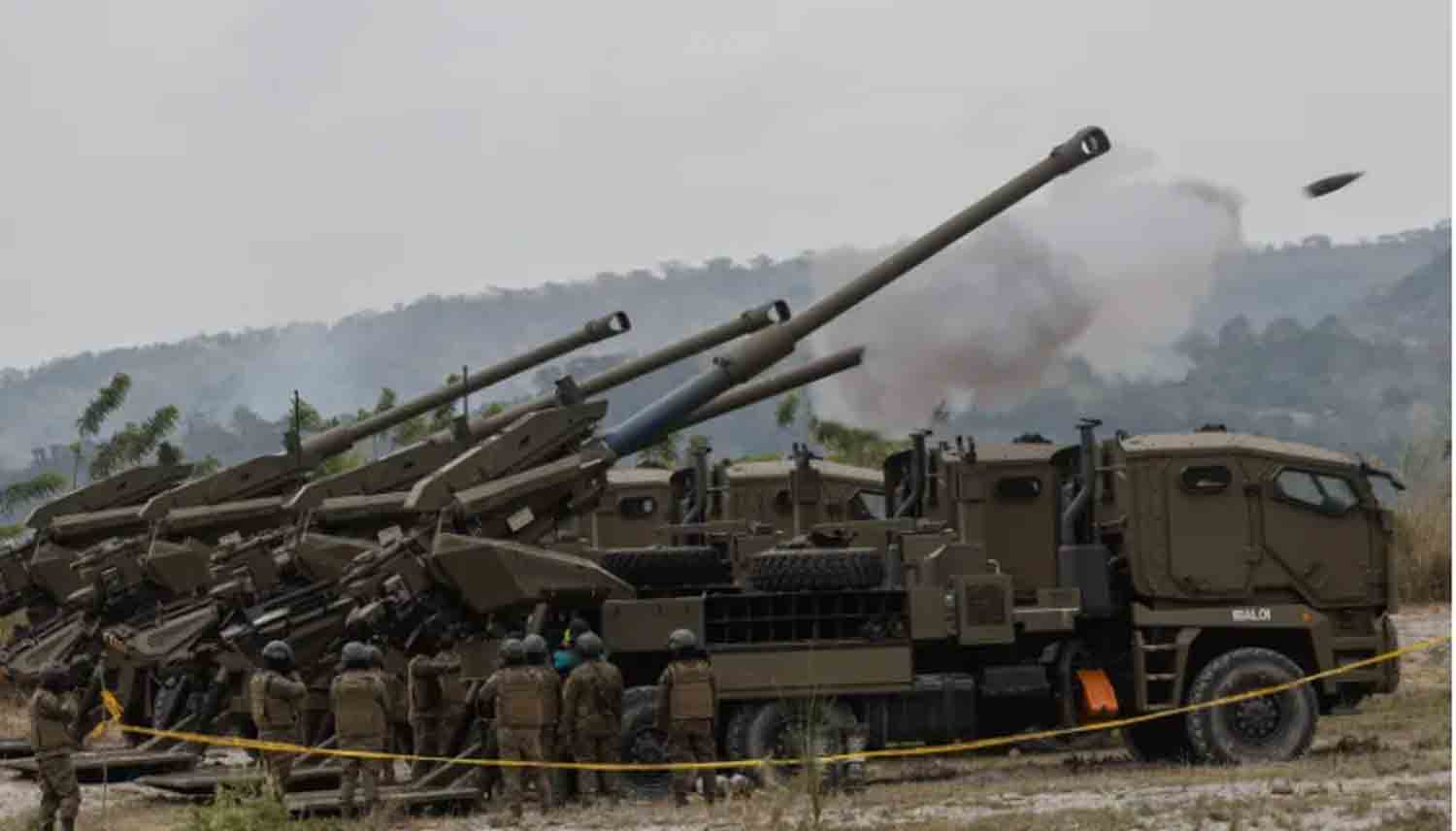For a fortnight, America’s allies remained silent. Since his inauguration, President Donald Trump had received a continuous flow of positive remarks—and minimal criticism—from leaders in Europe and the Anglosphere, who may have privately taken issue with the tumult and bravado he brought to the presidency.
However, this temporary harmony was destined to break, and it did so dramatically this week when Trump proposed one of his most controversial foreign policy initiatives: placing Gaza under American governance, relocating its Palestinian inhabitants, and transforming the area into the “Riviera of the Middle East.”
This proposal appeared to instantly dismantle decades of established Western policy, veering away from the long-accepted, albeit frustratingly stagnant, “two-state solution” framework.
Countries swiftly denounced the idea. Allies in the region expressed shock and apprehension regarding the potential repercussions on ongoing diplomatic efforts, particularly the ceasefire and hostage negotiations between Israel and Hamas. Palestinians voiced their distress at the thought of being uprooted from their homeland.
In Europe, where the United States typically navigates less complex relationships, leaders expressed a range of reactions but were unified in their opposition: they do not endorse this plan.
Nonetheless, Trump has placed America’s partners in a challenging position. For many leaders, openly criticizing the US is a last resort—doing so early in a presidential term carries significant risks.
“My impression is that they are all taken aback. They didn’t anticipate this,” remarked Jon B. Alterman, a former US State Department official and current director of the Middle East Program at the Center for Strategic and International Studies, a Washington-based think tank.
There are also broader, more widespread implications at play. Trump’s erratic approach to geopolitical matters has gradually put the United States at risk of becoming ideologically isolated from its global partners. His comments regarding Gaza—whether they signify a concept, a strategy, or something in between—could further this trend.
“This administration not only has a tendency but also a desire to disrupt,” Alterman noted. He anticipated “a more profound introspection in Europe regarding its engagement with a United States that is increasingly self-centered and less dedicated to a multilateral framework.”
Trump and Europe
Many Western countries are wary of the unpredictability that Trump introduces into the political landscape, yet they were better equipped for his potential second term than they were for his first.
They anticipated a challenge of this nature. Their reactions to Trump’s Gaza proposal underscored how they might address the broader implications of a second Trump presidency.
The United Nations responded firmly, with its secretary-general cautioning Trump against “ethnic cleansing.” France characterized the proposal as “a serious violation of international law,” noting that the forced displacement of a population is forbidden under the Geneva Convention. Spain’s foreign minister stated on radio station RNE that “the land of Gazans is Gaza.” In Western Europe, only Dutch far-right leader Geert Wilders diverged from the consensus to support the plan, suggesting, “Let Palestinians move to Jordan. Gaza-problem solved!” on X.
German President Walter Steinmeier described the proposal as “unacceptable,” while Foreign Minister Annalena Baerbock warned that it would result in “new suffering and new hatred.”
Eric Nelson, who served as Trump’s ambassador to Bosnia and later as the associate director of the German-American Marshall European Center for Security Studies in Munich, remarked to CNN, “As a career diplomat, my role was to present the interests of the US government in the most favorable manner. President Trump made that increasingly challenging. It was difficult to predict his next moves.”
He observed that the German government’s response was predictable: they are quite dismissive. The approaching federal election has heightened the pressure on the struggling German government to denounce Trump, who is largely unpopular in Germany and throughout Western Europe.
This situation is one that Trump’s team is likely to view with ease. Nathan Sales, Trump’s former Coordinator for Counterterrorism, stated, “They won’t anticipate Western capitals to enthusiastically join in. We don’t need to agree with our allies all the time.”
Moreover, German Chancellor Olaf Scholz and his administration have little reason to hold back their criticism, as they may not remain in power next month to address any fallout.
However, not everyone finds it easy to criticize the US president.
Consider the situation in Britain. As a loyal ally of the United States, the UK is eager to cultivate a constructive relationship with Trump, and initial indications suggest that Prime Minister Keir Starmer’s charm offensive is yielding results. Trump remarked this week that Starmer had been “very nice” and hinted that the UK might evade the tariffs he has threatened against the European Union. This represents a significant opportunity for a British leader seeking to stimulate economic growth.
However, these connections are precarious. London is acutely aware that a poorly chosen comment could jeopardize months of efforts to win over Trump. Simultaneously, Starmer understands the risks of appearing overly submissive to an American president, a stance he has previously criticized Conservative leaders for adopting.
This dilemma necessitates careful communication. “On the issue of Gaza, Donald Trump is right,” stated David Lammy, Starmer’s Foreign Secretary, while speaking to reporters in Ukraine this week, tailoring part of his response for Trump’s ears. “Observing those scenes, it is evident that Palestinians have been horrendously displaced amid months of conflict, and Gaza lies in ruins.” The remainder of his statement was directed at a broader audience: “We have consistently maintained that a two-state solution is essential, allowing Palestinians to live and thrive in their homeland in Gaza.”
A Labour MP expressed to CNN his shock at Trump’s comments but acknowledged that numerous factors, including an ongoing ceasefire and a vital trade relationship, made public criticism of the president unwise. He expressed considerable sympathy for Starmer as he endeavors to maintain a positive relationship.
“Adopting a hardline stance with allies is certainly an unusual approach to foreign policy,” the MP remarked. “Will he apply the same strategy with adversaries?”
The upcoming confrontation
Similar to many of Trump’s more controversial statements, his proposal regarding Gaza has been met with both criticism and scrutiny, both domestically and internationally, for its potential strategic implications.
Those who understand his mindset suggest that presenting an undesirable standard could, intentionally or not, prompt America’s allies to devise a more favorable alternative. “He thrives on keeping others in a state of reaction,” noted Nelson.
“We have witnessed this tactic from President Trump on numerous occasions… this exemplifies the art of negotiation,” Sales remarked. “Many of the United States’ Western allies are entrenched in outdated perspectives regarding the Israeli-Palestinian conflict… during his first term, the Trump administration acknowledged that this approach was futile.”
However, if the intention was to break through a longstanding diplomatic impasse, it carries risks that may not be well-received by America’s partners. “When you attempt to thaw frozen situations, you might unleash forces that are far more detrimental than you can anticipate,” Alterman cautioned.
Among these risks is the potential for American isolation on global matters, leading to a void in international leadership. “Several nations may feel compelled to establish different ties with Russia and China,” Alterman warned. “This is partly to reduce their dependence on the United States and partly because they no longer perceive the moral advantages of a close alliance with the U.S.”
The risk is amplified by Trump’s actions to impose sanctions, withdraw from, or criticize international organizations, as well as his efforts to dismantle the U.S. Agency for International Development (USAID).
“Many people mistakenly view USAID as merely a charity,” Nelson remarked. “While Americans are indeed among the most generous globally, making strategic investments is crucial for supporting our allies and enhancing our influence.”
This is unlikely to be the final geopolitical clash between Trump and Europe. Observers are already considering potential negotiations to resolve Russia’s war in Ukraine; Trump has previously proposed the idea of conceding Ukrainian territory to Russia, raising concerns among NATO officials that he might publicly advocate for a deal that would leave Kyiv and European capitals in a difficult position.
To alleviate these concerns, several members of Trump’s close circle, including Secretary of State Marco Rubio, Vice President JD Vance, and Ukraine-Russia envoy Keith Kellogg, are anticipated to attend the Munich Security Conference in Germany next week.
“I hope the administration will adopt a more balanced and thoughtful strategy regarding Ukraine,” Nelson stated. “It is essential that Trump relies heavily on expert guidance concerning this conflict,” he added.
In various respects, Trump’s favorable global standing seems to have diminished. Western nations have been reminded of the disruption he can bring to international relations.
“The Biden administration has made significant efforts to be a reliable and predictable presence on the global stage,” Alterman noted. “In contrast, the Trump administration operates with an entirely different instinct.”
Discover more from Defence Talks | Defense News Hub, Military Updates, Security Insights
Subscribe to get the latest posts sent to your email.





